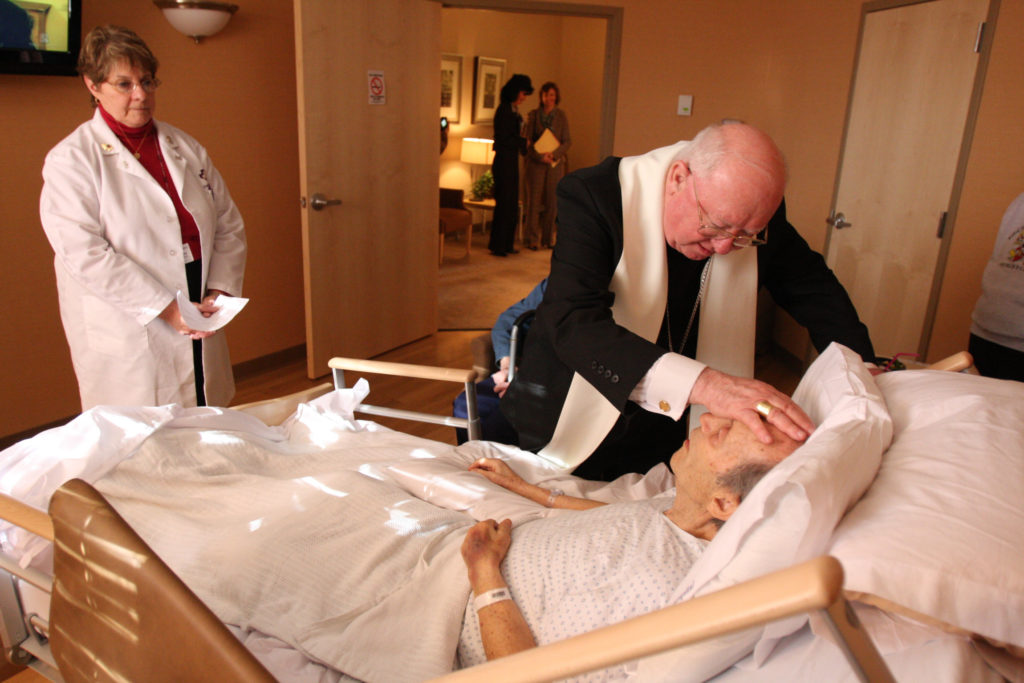OUR SACRAMENTS
Sacraments are visible signs of an invisible reality
We believe that through the matter and formula (the words), the reality of God’s presence and love is communicated to us. We celebrate seven sacraments as Catholics. Each contains some “thing” that is used and has specific “words” which we invoke.
These are not merely moments of grace, but are signs of God’s continued giving of Grace to us. They remind us that God is present in our lives, in all that we do, and that God is always there to empower us to do what is good and just.
BAPTISM
By Baptism, one is incorporated into the Church of Christ and is constituted a person in it with the duties and rights which are proper to Christians in keeping with their condition insofar as they are in ecclesiastical communion and unless legitimately issued sanction stands in the way.”
Baptism is the fundamental sacrament. It is part of the three sacraments of initiation, along with Confirmation and the celebration of First Eucharist.
Baptism signifies through the water God’s pouring out of love into our very lives and our commitment to follow the way of Christ which leads us to Freedom.
Baptism signifies that in Christ and through our daily encounter with Christ, we are washed clean of sin.
In the Sacrament of Baptism we acknowledge we are children of God, loved by the Father for all eternity and beyond all time. Living out baptism is to reject all that demeans us and others, and to accept all people as children of God.
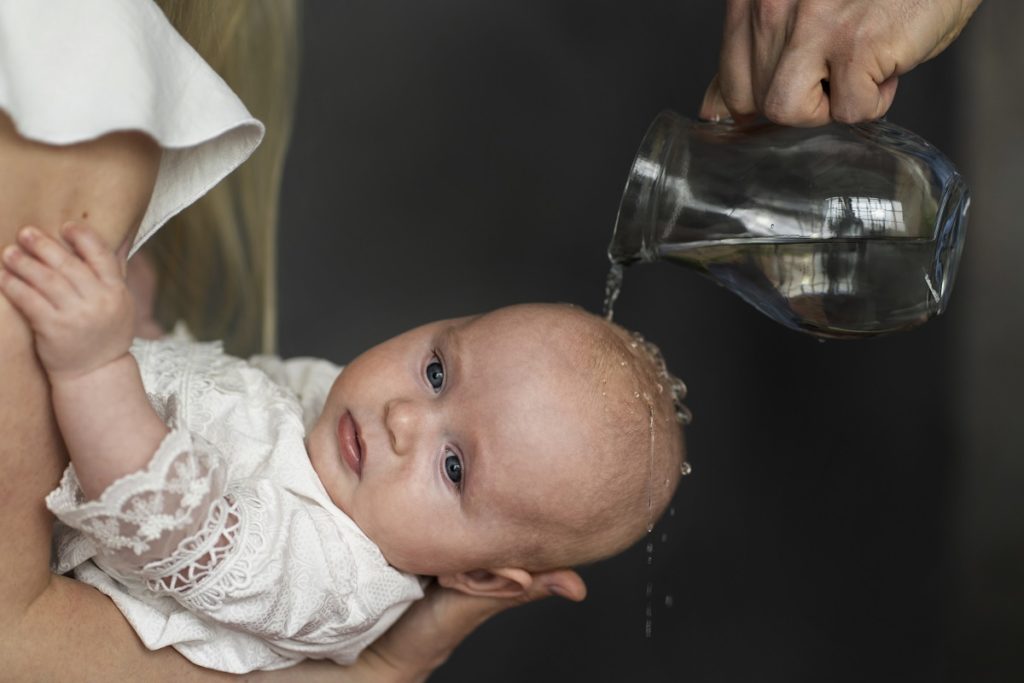
CONFIRMATION
The sacrament of Confirmation is to be conferred on the faithful at about the age of discretion unless the conference of bishops determines another age or there is danger of death or in the judgement of the minister a grave cause suggests otherwise.”
Confirmation is part of the three Sacraments of Initiation. Through this Sacrament, we recognize the Holy Spirit at work within us; helping us to be full members of the community; helping to build up unity, love and harmony.
Confirmation is celebrated in three manners:
1. Those Catholics who were baptized as Infants celebrate Confirmation when they are teenagers.
2. Those un-baptized persons who are above the age of seven celebrate Confirmation along with First Communion at the same time they are baptized.
3. Those validly baptized into another Christian faith, and later wish to become Catholic celebrate Confirmation at their reception into the Catholic Church along with their First Communion.
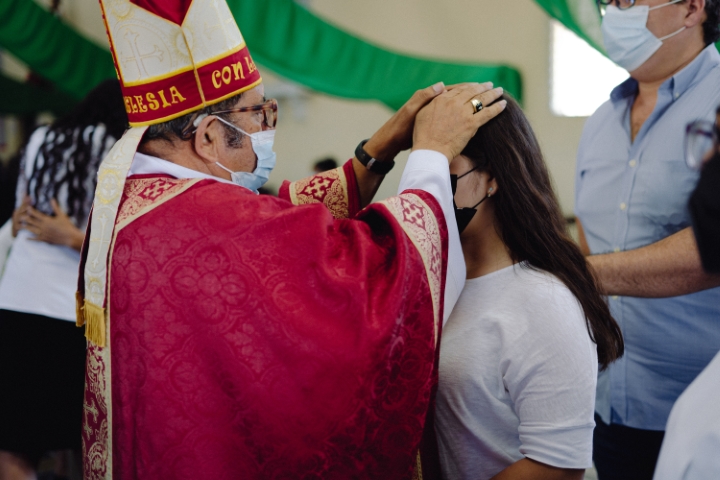
EUCHARIST/FIRST COMMUNION
As Catholics, we fully participate in the celebration of the Eucharist when we receive Holy Communion.
We are encouraged to receive Communion devoutly and frequently. Fellow Christians are welcome to participate in the celebration of the Eucharist. We pray that our common baptism and the action of the Holy Spirit in the Eucharist will draw us closer to one another and begin to dispel the sad divisions which separate us.
As Catholics, we believe that the celebration of the Eucharist is a sign of the reality of the oneness of faith, life, and worship. Therefore, members of those churches with whom we are not yet fully united are ordinarily not admitted to Holy Communion.
Eucharistic sharing in exceptional circumstances by other Christians requires permission according to the directives of the diocesan bishop and the provisions of canon law.(C.844)
Participants in the celebration of the Eucharist who are not receiving Holy Communion are encouraged to express in their hearts a prayerful desire for unity with Jesus and with one another.
Persons who do not share the Catholic faith in Jesus Christ are welcome to the celebration of the Eucharist. While they are not permitted to receive Holy Communion, we ask them to offer their prayers for the peace and unity of the human family.
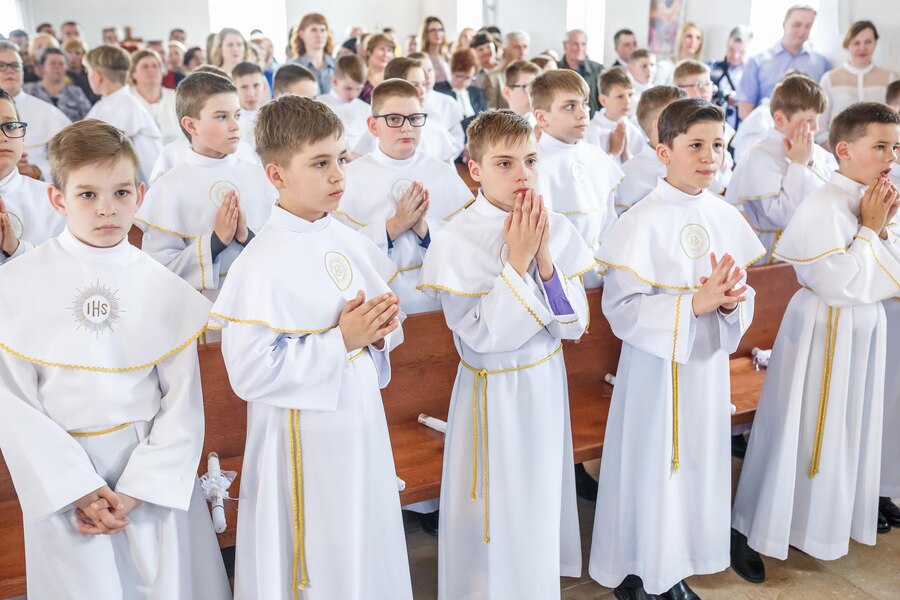
RECONCILIATION
Individual and complete confession, is the ordinary means of reconciliation with God and with the Church.”
Catholics will call this sacrament “Confession.” However, this word alone does not really capture the significance of this beautiful sacrament. It is one of healing, and confession is a part of this, but not the whole of it.
When we commit sins we wound our relationships with God, with others and the whole of the community. So we need to be reconciled. The priest, in the name of the community and of God hears the confession of sins, will administer a penance which is to effect a healing, and then will give the words of absolution.
This makes all people nervous, but in the end, it is a relief to be released of those wounds. Of course, the intent is that we are no longer going to commit those sins. So it is not intended for us to sin and confess, then keep on repeating. It is to evoke a change in our behavior.
When a person celebrates the Sacrament of Reconciliation all that they tell the priest is held confidential through the Seal of the Confession. The priest may not speak of what he has heard, nor can he be coerced to speak of what he has heard.
Catholics are to regularly celebrate this Sacrament, especially when they are conscious of committing a grave (mortal) sin.
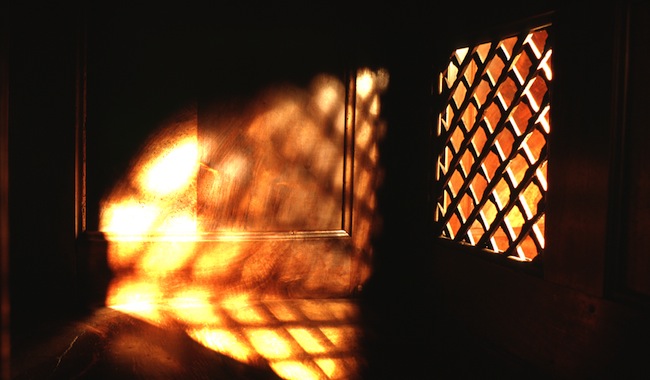
MATRIMONY
The Sacrament of Matrimony signifies the Reality of God that is Unity. A Man and a Woman give of themselves completely to the other and form one family. It is a bond that nothing is to come between, for it signifies the bond that God has made with Humanity.
Obviously we take marriage seriously, and persons are to not enter into this life long bond without preparation to ensure they are truly free to make this bond, and they understand the nature of this bond.
For a Sacramental Marriage in the Catholic Church, at least one of the party must be a baptized Catholic. Both the Bride and Groom must be free to marry (no other bonds) and must know and accept that a marriage is a lifelong commitment between two equals and are open to the possibility of children.
All couples seeking to marry within the Catholic Church must participate in a minimum of six weeks of preparation.
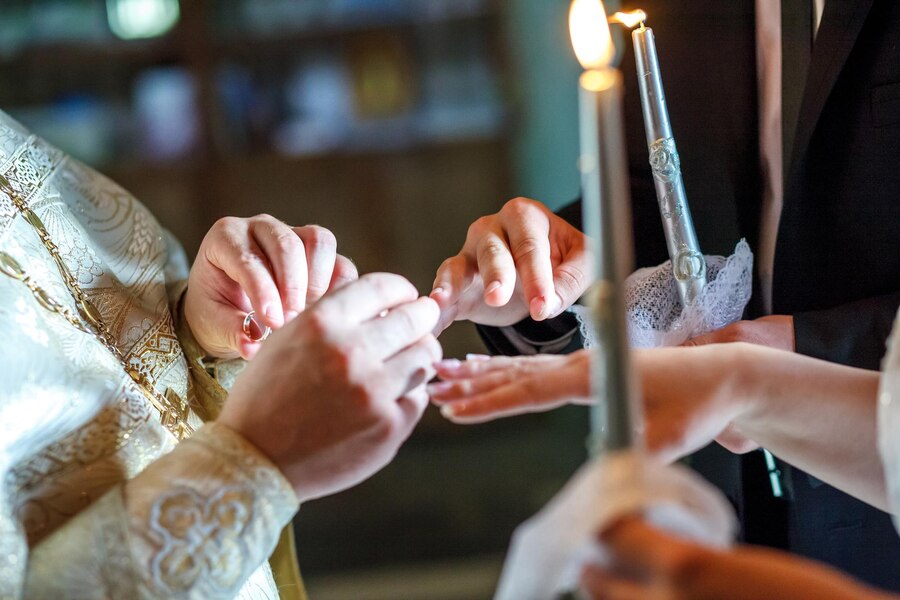
HOLY ORDERS
God calls all of us to serve and be disciples, and we answer this call through the sacrament of Baptism. Catholics believe that some are then called to serve in a concentrated way through the Religious Life.
Holy Orders are for those men who are called to serve in this way through the Permanent Diaconate, the Priesthood or the Episcopacy. They are “ordained” to serve.
Women who are called will serve and join religious communities, and will take on the vows and charisms of that specific community, but they are not ordained within those community.
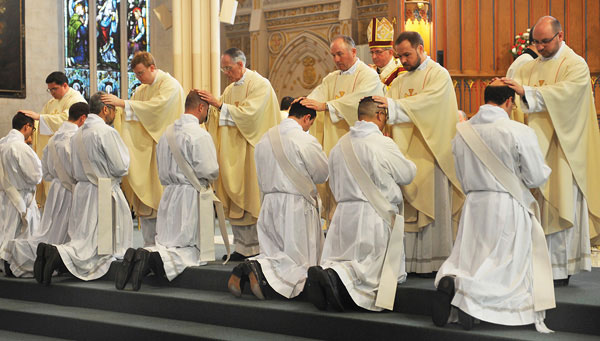
ANOINTING OF THE SICK
Anointing of the Sick is a repeatable Sacrament which signifies God’s healing presence, both physical and spiritual. This sacrament can be celebrated for all those who are ill, going into or recovering from surgery, and also those approaching death. The “matter” is the Oil of the Sick; the “Form” is “Through this holy anointing, may the Lord in his love and mercy help you with the grace of the Holy Spirit. May the Lord who frees you from sin, save you and raise you up.”
